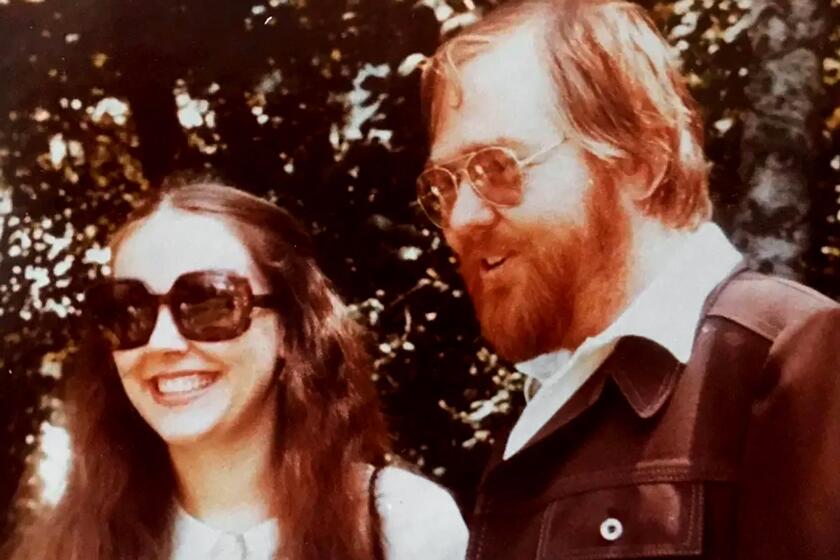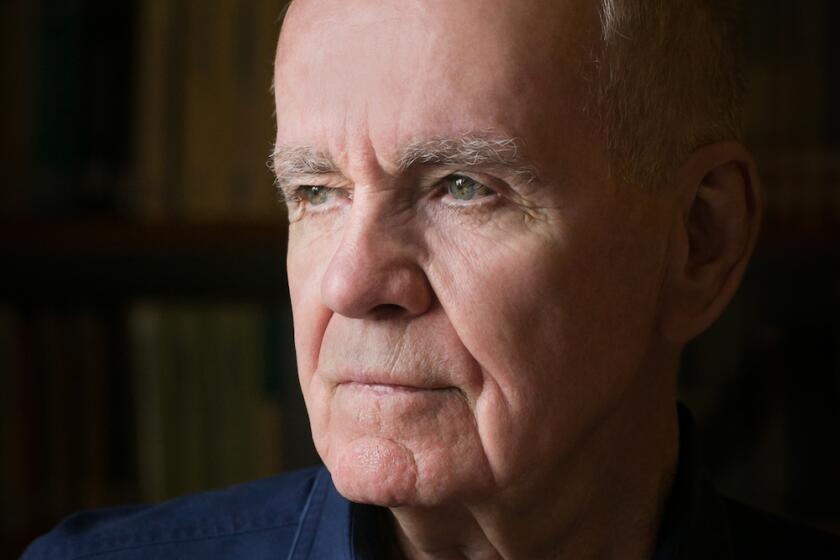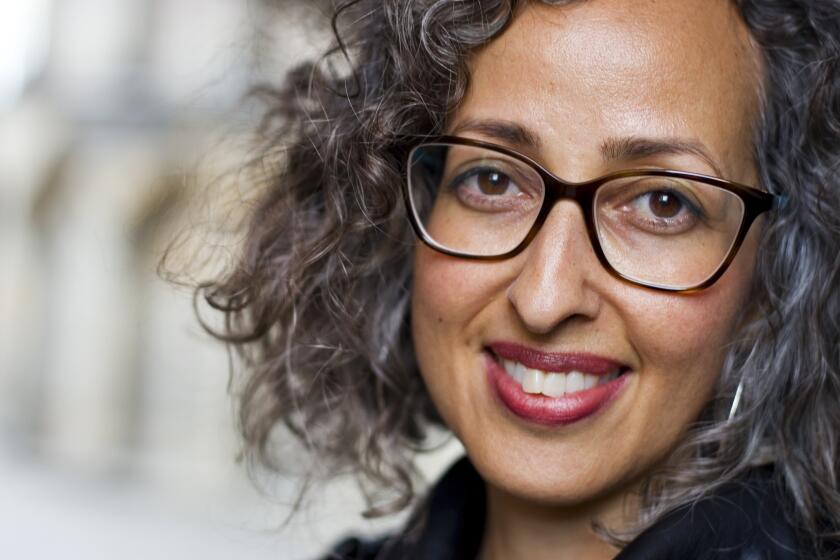Review: How to reclaim religion from the fundamentalists — if you can survive it
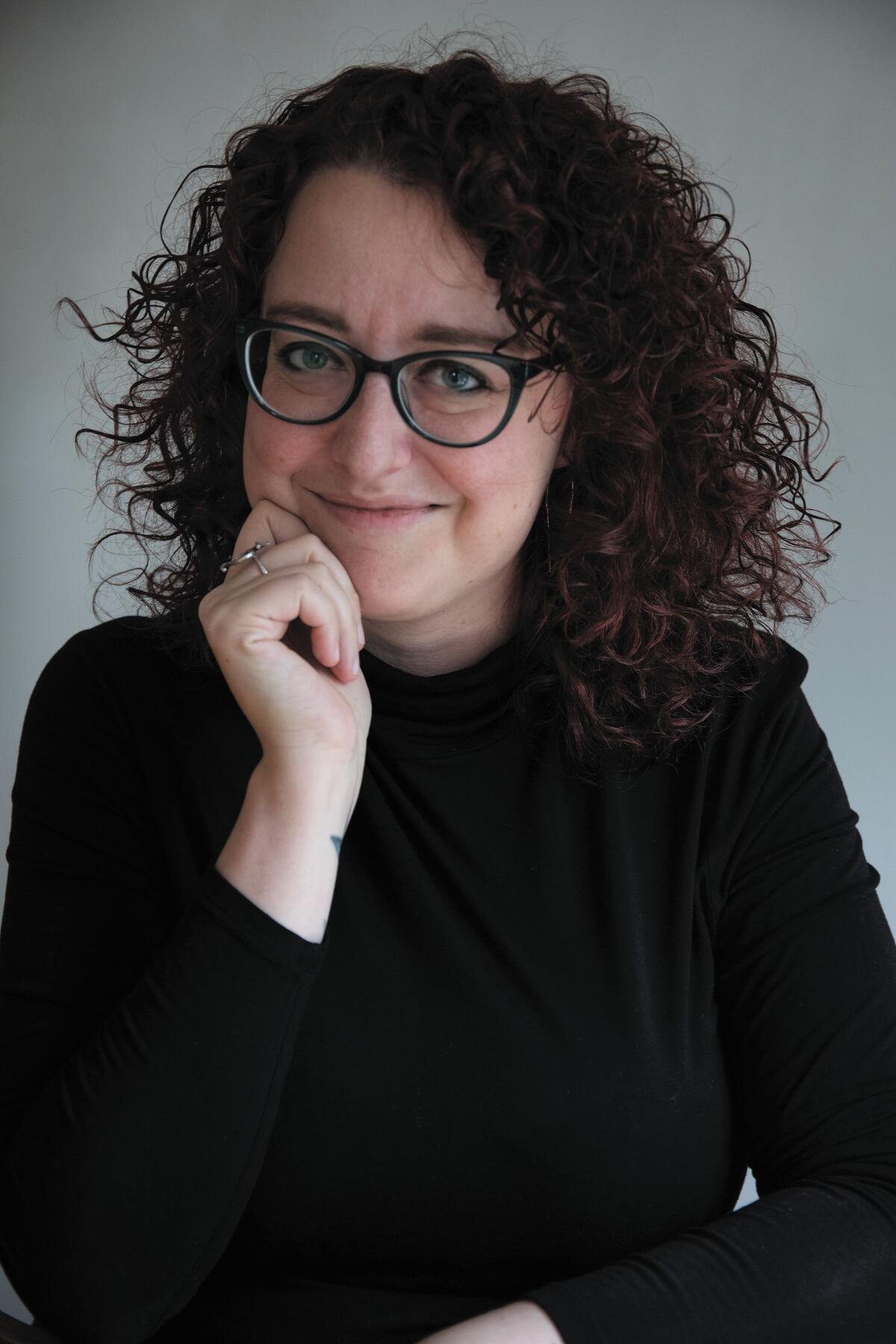
- Share via
On the Shelf
Heretic: A Memoir
By Jenna Kadlec
Harper: 272 pages, $28
If you buy books linked on our site, The Times may earn a commission from Bookshop.org, whose fees support independent bookstores.
There is a video meme of the actress Jamie Lee Curtis describing what the “Halloween” movie franchise is all about: “trauma,” “rage and trauma,” “women’s trauma,” “family trauma,” “generational trauma,” she says over and over in a series of mashed-together clips. Despite its seriousness, “trauma” has become a bit of a buzzword.
Jeanna Kadlec’s first book, “Heretic,” is a memoir about her leaving the evangelical church and coming out as queer. For Kadlec and numerous Americans, shaking off the bonds of that institution — specifically the born-again variety — is undoubtedly traumatic. But never had I read the term “religious trauma” before opening this book. Kadlec describes it as “something that many people in this country are walking around with, without having a label for it.”
How many families, lives, relationships have been destroyed by clinging to or entering into an evangelical faith? “Heretic” intends to capture not just Kadlec’s experience but also the insidious ways our country is inextricable from a fundamentalist belief system. Therefore, inevitably, her story is intertwined with the history of the church. This puts “Heretic” in league with another blended memoir, Carmen Maria Machado’s “In the Dream House,” which chronicled an emotionally abusive relationship through literary tropes.
Kadlec has a PhD and it shows, with copious footnotes and citations, but she is also a friendly narrator, sharing revelations in the tone of a close friend, so that the points of her argument seem to emerge organically alongside the research. Anecdotes don’t make data, but both happily coexist here. Kadlec’s account is so relatable that one begins to see the ties that bind us to evangelical philosophy even if we are not members of that church.
Erin Keane’s mother ran away from home at 13 and married two years later. In “Runaway,” Keane unearths her parents’ past and the myths that shaped them.
Take the foundational idea of the American dream: Work hard, pray and God will provide. “But my parents didn’t teach us financial literacy, how to do our taxes, how to save or invest,” Kadlec writes, citing the writer Lauren Berlant’s concept of “cruel optimism.” “There was a lot of talk at the dinner table about how America was the greatest country in the world.” And yet, “we still lived paycheck to paycheck.”
This disjunction from reality can border on disdain for it. For instance, when thinking about abortion in the case of rape, she writes that for evangelicals “there is no rape. If obedient followers perfectly abide by the law of abstinence until marriage, there is no adultery, no rape, no sexual abuse of adults or minors.”
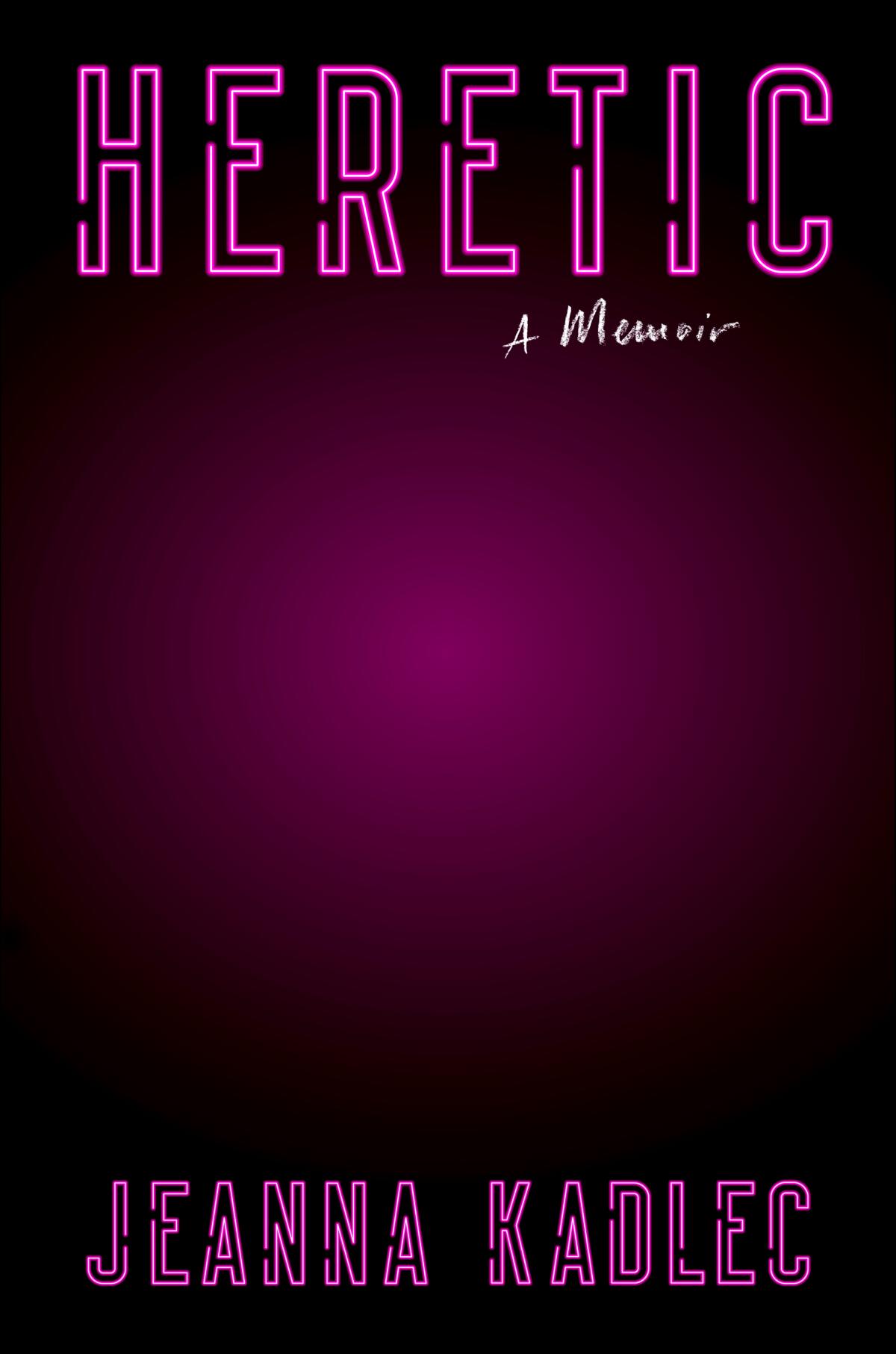
Kadlec is obligated to marry her college boyfriend so they can have sex. When he proposes in a bookstore, her first impulse is to back away. The wedding night is horrifying for reasons that surprise her: “It was clear that something was wrong with me. It wasn’t that it hurt; it was that I didn’t feel much of anything.” It’s clear to Kadlec that her husband expects her submission through sex. Though she offers to help him apply to graduate school (she had been accepted into a PhD program and he hadn’t), he tells her he’d rather have help from his “guy friends,” who know nothing about graduate school admissions.
Kadlec realizes she has to leave the marriage if she wants to survive. She falls in love with a woman. “Curiously, I feel no guilt for kissing a woman; perhaps it’s because my guilt for cheating on my husband is too overwhelming.” Or more likely, as she writes first, “perhaps it’s because it feels so right.”
Cormac McCarthy’s ‘The Passenger’ and ‘Stella Maris’ display his brilliance in full, exploring math, physics and incest in a brother-sister story.
Where Kadlec departs from Machado is that her cultural sidebars — including on She-Ra and Dungeons and Dragons — are less gripping for the reader. She is strongest as an academic, writing from not only personal but scholarly experience; she knows her way around Christian texts. In Bible study class, she asks her female peers to turn to Ephesians 5. “We don’t have to submit,” she tells them. “Marriage can be a partnership of equals. You would’ve thought a bomb went off. ... Male headship is God’s will, they repeated. Women who were intelligent.”
She notes that when Jesus emerges from the tomb, he chooses to appear to three women first, not his male disciples; that Paul encouraged wives, children and the enslaved to join their chosen family, subverting the “law-affirmed order of the Roman household.” As for sex outside marriage, “there are verses that condemn ‘sexual immorality,’ which is rarely defined but is considered by theologians and biblical scholars to be a caution against engaging in ritual sex with sacred prostitutes.”
These scriptural deep cuts are fascinating. Though Kadlec writes that she has no interest in returning to the Christian faith, one wonders if perhaps there are other, more expansive readings still available to her.
Heretics were burned at the stake for such blasphemy. But Kadlec reminds us that the one thing the evangelical faith gave her was a passion for reading and analysis. The idea that Jesus preached against the patriarchal order of the day is commonly framed as a feminist revision of history. Following in the footsteps of scholars such as Elaine Pagels, what Kadlec suggests is something more exciting — not a revision but a restoration of the Christian faith. Is Kadlec a heretic? Or is she the true believer?
Sofia Samatar’s “The White Mosque,” a singular memoir about a journey through Asia on the trail of a Mennonite sect, tracks a personal search as well.
Ferri’s most recent book is “Silent Cities: New York.”
More to Read
Sign up for our Book Club newsletter
Get the latest news, events and more from the Los Angeles Times Book Club, and help us get L.A. reading and talking.
You may occasionally receive promotional content from the Los Angeles Times.
